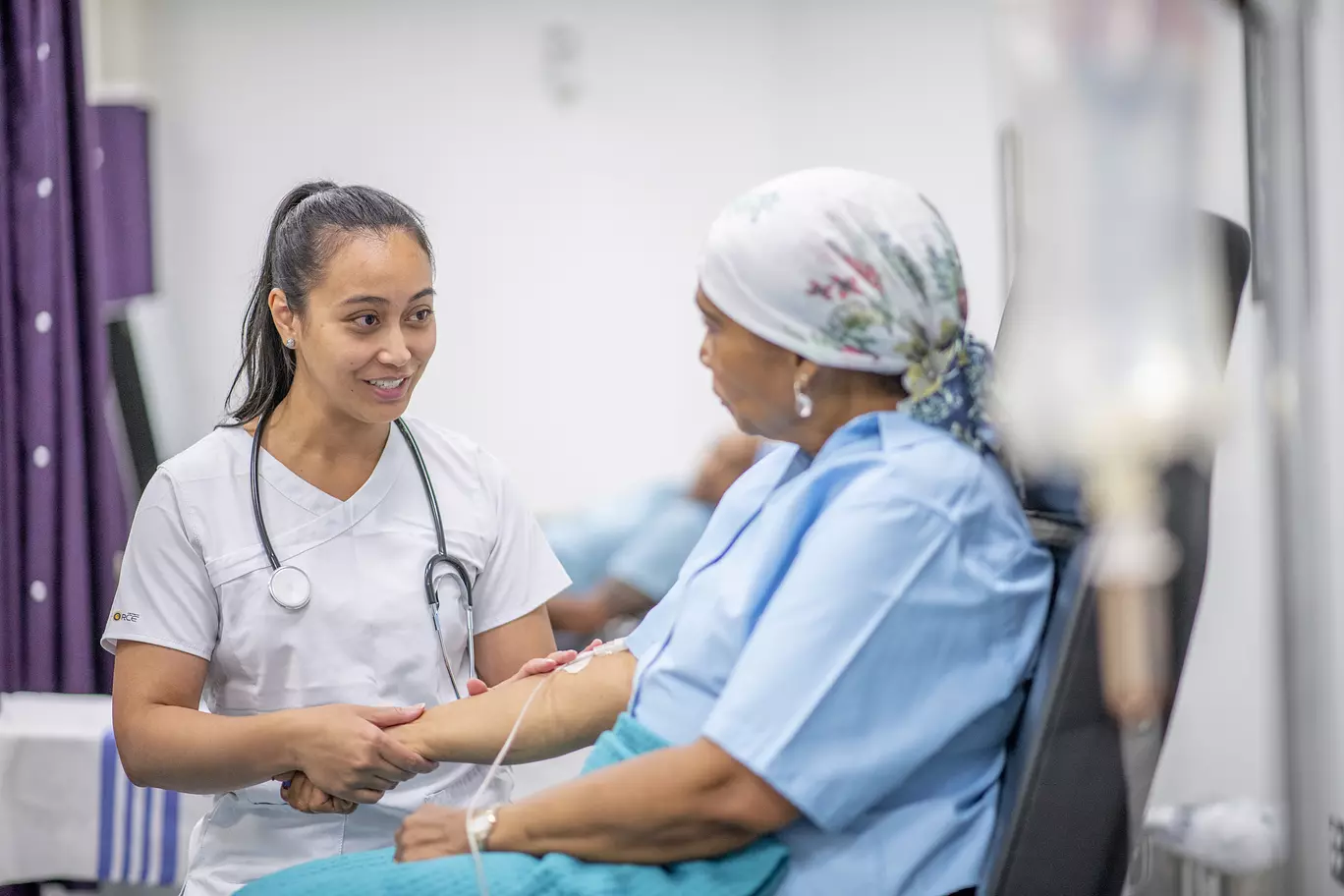Cancer and Hair Loss
By Megan O'Leary |
Men and women report hair loss as one of the side effects of cancer they fear most, which can be difficult to cope with, but many have misconceptions about cancer and hair loss. In this article we explore the subject and provide tips to cope.

Does Cancer Cause Hair Loss?
Many view hair loss as a direct symbol to the world that you have cancer. Both men and women report hair loss as one of the side effects they fear most after a lung cancer diagnosis. This is because losing hair can often change a patient’s sense of identity, which can be difficult for them to cope with.
When you have cancer, it is often believed that you will eventually lose weight or even all of your hair, but is cancer the root of the cause though? The answer is no. We’ve compiled a comprehensive assessment of the correlation between cancer and hair loss to resolve any confusion.
Does Cancer Cause Hair Loss Before Treatment?
It is generally assumed that all cancer patients will inevitably struggle with hair loss as a direct result of the diagnosis. However, hair loss is a response to the chemotherapy and radiation treatments used to target cancer cells. Both forms of lung cancer treatment attack the rapidly-growing cancer cells in the body, but they also attack normal fast-growing cells, such as hair roots.
Coping with Hair Loss and Cancer Treatment
When you’re struggling with lung cancer and the challenges that follow the diagnosis, it may be difficult to adjust to hair loss and other changes to your appearance. This side effect can be distressing, but there are many resources to help patients experiencing hair loss due to cancer treatment.
CancerCare is the leading national organization dedicated to providing free, professional support services for people affected by lung cancer. This resource offers services including counseling, case management, financial assistance, and support groups for lung cancer patients and survivors.
Another resource for patients is the Verna Foundation, which is a national nonprofit organization that provides cancer patients suffering from hair loss with high-quality cap wigs. The organization is committed to helping patients battling cancer maintain a sense of normalcy and help them focus their energy on healing and recovery.
Hair Loss Prevention
Scalp hypothermia is the act of cooling the scalp with ice packs or cooling caps throughout each chemotherapy treatment to prevent or reduce hair loss. The idea behind scalp hypothermia is that the cooling sensation tightens and constricts blood vessels in the scalp.
This constriction is believed to reduce the amount of chemotherapy that reaches the cells of the hair roots. The cold temperature also decreases the activity of the hair roots and makes them less attractive the treatment, which targets rapidly moving cells.
How Long After Chemo do you Lose Your Hair?
Hair loss from chemotherapy is caused by weakening hair follicles which typically leads to hair loss between two to four weeks after the start of treatment. Most of the time hair loss as a result of chemotherapy is temporary and you can expect to regrow your hair three to six months after your treatment ends.
In many patients with lung cancer, chemotherapy keeps tumors small so that radiation treatments can work better to destroy them. This form of therapy can also reduce the likelihood of cancer cells growing back after treatment.
Reduced Effectiveness of Chemotherapy
Being diagnosed with cancer can be quite overwhelming, but it is important to eliminate any extra factors that may reduce the effectiveness of chemotherapy treatment. For patients that smoke or use tobacco, one of the best things they can do to help their cancer prognosis is to quit smoking or remain smoke-free.
Cigarette smoke and chemicals reduce the levels of some chemotherapy drugs, making them less effective. Quitting smoking may not be easy, but it has an immediate positive impact on smokers’ lungs and ultimately their cancer outlook.
Do You Lose Your Hair With Radiation?
Radiation therapy uses high doses of radiation to kill cancer cells and shrink tumors during cancer treatments. This form of treatment not only destroys cancerous cells but may also affect healthy cells in your body, including hair cells.
Radiation is often used to treat cancers associated with the lungs, such as lung cancer and mesothelioma, to reduce symptoms and extend the survival rates of patients. This treatment is typically utilized in the early stages of diagnosis, but can also limit the progression in patients with more advanced cancers.
When Is Radiation Used?
During the early stages, you may be treated with radiation on its own, whether you choose to have surgery or not. The use of radiation after chemotherapy is another method often used for stage 2 of lung cancer.
Radiation and chemotherapy are sometimes used at the same time for a more aggressive form of treatment during stage 3. However, this combination can significantly increase side effects due to its strength. Radiation may also be used during stage 4 advanced lung cancer, when the tumors have spread throughout the body.
Other Lung Cancer Resources
Hair loss as a result of cancer treatment can be stressful. You might find it to be the hardest part of your cancer diagnosis and treatment process. This is understandable because hair loss can alter your self-esteem and sense of identity, which can be difficult to overcome. It’s important to practice patience and surround yourself with a strong support system that will cheer you on.
Our Lung Cancer Guide can help patients, families, and caregivers navigate their way through a lung cancer diagnosis and treatment plan. With the help of our professional knowledge and endless resources, we’re here to help you find the best treatment options for your unique situations.